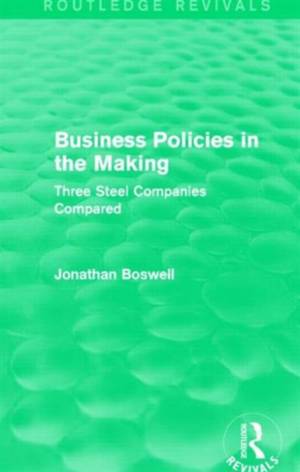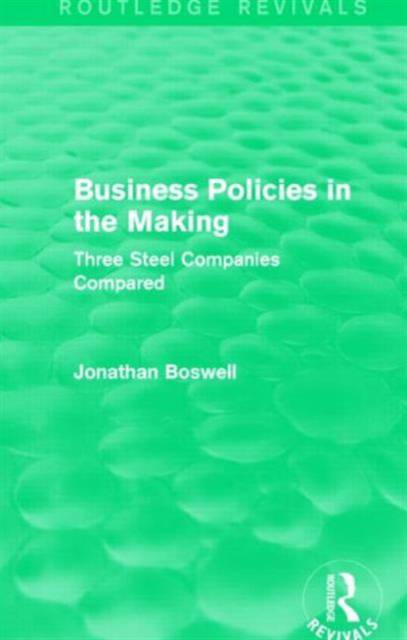
- Retrait gratuit dans votre magasin Club
- 7.000.000 titres dans notre catalogue
- Payer en toute sécurité
- Toujours un magasin près de chez vous
- Retrait gratuit dans votre magasin Club
- 7.000.000 titres dans notre catalogue
- Payer en toute sécurité
- Toujours un magasin près de chez vous
Business Policies in the Making (Routledge Revivals)
Three Steel Companies Compared
Jonathan Boswell
320,95 €
+ 641 points
Format
Description
First published in 1983, this study investigates and compares three leading firms in the British iron and steel industry between 1914 and 1939, analysing their strategies, boardroom politics, and their responses to the problems posed by the Great War and by the vicissitudes of the 1920s and '30s. Boswell's rejection of economic determinism; his insistence that managerial influences fall into definable long-run patterns; and his theses on managerial specialisation and long-term policy biases confront fundamental issues for theories of the firm.
Spécifications
Parties prenantes
- Auteur(s) :
- Editeur:
Contenu
- Nombre de pages :
- 254
- Langue:
- Anglais
- Collection :
Caractéristiques
- EAN:
- 9781138778801
- Date de parution :
- 19-03-14
- Format:
- Livre relié
- Format numérique:
- Genaaid
- Dimensions :
- 140 mm x 216 mm
- Poids :
- 439 g







